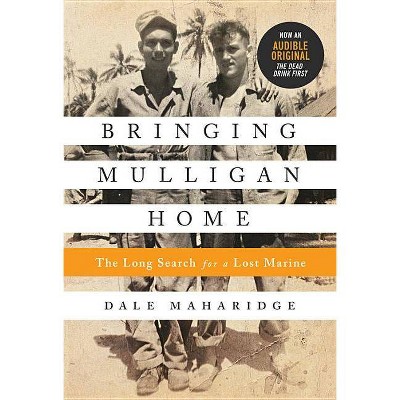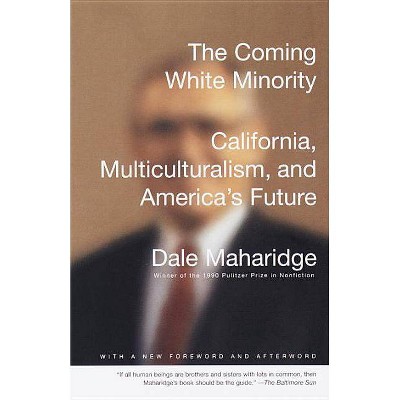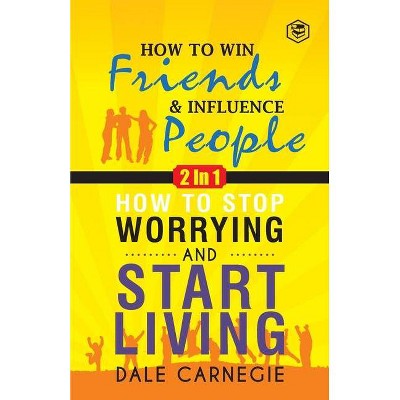Snowden's Box - by Jessica Bruder & Dale Maharidge (Paperback)

Similar Products
Products of same category from the store
AllProduct info
<p/><br></br><p><b> About the Book </b></p></br></br>"In the summer of 2013, the world was riveted by Edward Snowden's leak of millions of classified documents detailing the US government's massive and secret electronic surveillance program, in which the NSA had infiltrated tech companies, communication systems, emails and phones to spy on, among others, its own citizens. But this digital-age story had an analog side--Snowden mailed printed-out documents to the journalists Jessica Bruder and Dale Maharidge, who hid them in barrels, in an outhouse, and in a tree. Thus began an education in surveillance and counter-surveillance for these two experienced reporters, who were nonetheless completely ignorant about the lack of privacy they-and all of us-now have"--<p/><br></br><p><b> Book Synopsis </b></p></br></br><b>Two behind-the-scenes players in the edward snowden story reflect on the meaning of snowden's revelations in our age of surveillance</b> <p/> One day in the spring of 2013, a box appeared outside a fourth-floor apartment door in Brooklyn, New York. The recipient, who didn't know the sender, only knew she was supposed to bring this box to a friend, who would ferry it to another friend. This was Edward Snowden's box--materials proving that the U.S. government had built a massive surveillance apparatus and used it to spy on its own people--and the friend on the end of this chain was filmmaker Laura Poitras. <p/> Thus the biggest national security leak of the digital era was launched via a remarkably analog network, the US Postal Service. This is just one of the odd, ironic details that emerges from the story of how Jessica Bruder and Dale Maharidge, two experienced journalists but security novices (and the friends who received and ferried the box) got drawn into the Snowden story as behind-the-scenes players. Their initially stumbling, increasingly paranoid, and sometimes comic efforts to help bring Snowden's leaks to light, and ultimately, to understand their significance, unfold in an engrossing narrative that includes emails and diary entries from Poitras. This is an illuminating story on the status of transparency, privacy, and trust in the age of surveillance. <p/> With an appendix suggesting what citizens and activists can do to protect privacy and democracy.<p/><br></br><p><b> Review Quotes </b></p></br></br><br>"An engaging window into the scrappy human effort behind the Snowden revelations, Bruder and Maharidge's book also manages to provide some of the speculation, context, and--perhaps best of all--practical advice, that Snowden's book and Poitras's film will have made readers yearn for." <br><b>--Jonathan Lethem</b> <p/> "I've read virtually all of the books about the Snowden leaks, but this one stands apart...A beautifully written, gripping new book."<br> <b>--Cory Doctorow, <i>Boing Boing</i></b> <p/> "A short, yet fluent and well-researched, work from a duo of US-based investigative journalists ... despite the title, 'Snowden's Box' is essentially not about the box as such, but, as the authors themselves, acknowledge, about some of the most powerful analogue technology in the world: human relationships."<br> <b>--Vitali Vitaliev, <i>Engineering & Technology</i></b> <p/> "Jessica Bruder and Dale Maharidge, two innocents in the murky world, describe in <i>Snowden's Box</i> how, by chance, they were caught up in a potentially dangerous intrigue when a package containing the biggest ever single leak of US national security files was posted in Hawaii by old-fashioned mail and dropped outside their door."<br> <b>--Richard Norton-Taylor, <i>Literary Review</i></b> <p/> "The story of Edward Snowden's disclosure of NSA secrets to the press has been told and retold in books, films, and countless articles. Left unreported has been the quiet role of [Jessica Bruder and Dale Maharidge] who literally had Snowden material mailed to them in a cardboard box...[In <i>Snowden's Box</i>], the duo finally tells their story of beginners' encryption, convoluted codewords, and extreme paranoia."<br> <b>--Sam Biddle, <i>Intercept</i></b> <p/> "A gonzo story, told with a sense of humour ... Bruder and Maharidge tell a good yarn and make a strong case against government surveillance. They argue that everybody should have something to hide."<br> <b>--<i>Morning Star</i></b> <p/>"The simplest human connections are sometimes vitally important for journalists to carry out their work beyond the gaze of the spying agencies. Bruder and Maharige's book is a timely reminder of this fact."<br><b>--<i>Counterfire</i></b><br><p/><br></br><p><b> About the Author </b></p></br></br><b>Jessica Bruder</b> is the author of <i>Burning Book</i> and <i>Nomadland</i>, which was named a <i>New York Times</i> Notable Book and Editors' Choice and a finalist for the J. Anthony Lukas Prize and the Helen Bernstein Book Award. A movie based on the book, starring Frances McDormand, will open in 2019. She teaches at Columbia Journalism School and contributes to <i>The New York Times, New York, Harper's, The Washington Post, The Guardian</i>, and other outlets. She lives in Brooklyn. <p/><b>Dale Maharidge</b> is the author of ten books, including, most recently, <i>Bringing Mulligan Home: The Other Side of the Good War</i>. He won the Pulitzer Prize in 1990, has been a Nieman Fellow at Harvard and held residencies at Yaddo and MacDowell colonies. He teaches at Columbia Journalisn School and lives in New York and Northern California.
Price History
Cheapest price in the interval: 14.99 on October 28, 2021
Most expensive price in the interval: 14.99 on December 20, 2021
Price Archive shows prices from various stores, lets you see history and find the cheapest. There is no actual sale on the website. For all support, inquiry and suggestion messages communication@pricearchive.us




















